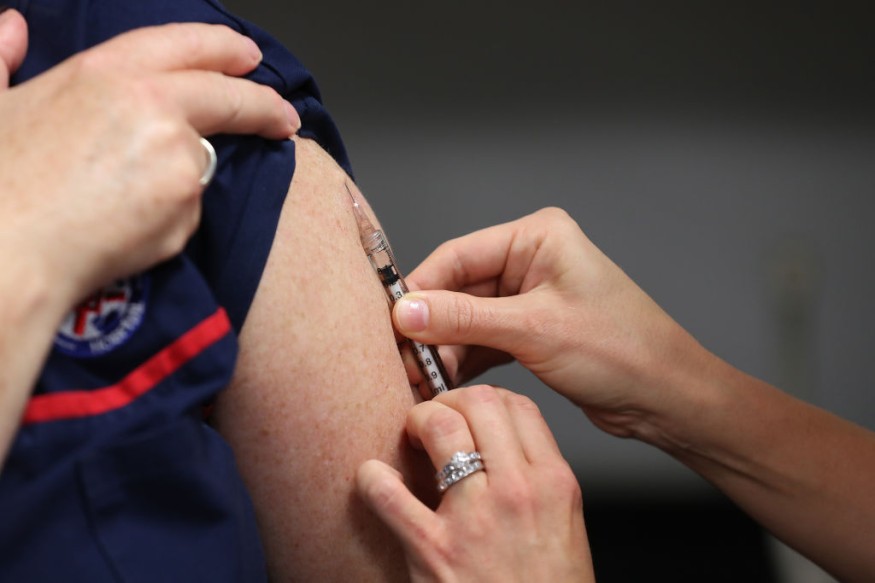FACT CHECK: Will COVID-19 Vaccination Be Mandatory Under Federal Law?

A social media post said a federal law would require a COVID-19 vaccination for all, but the claim is not true.
The Facebook post made in December claimed "if all goes 'well'," federal law can make people have a COVID-19 vaccination mandatory.
The post specifically targeted the COVID-19 vaccination effort of biotech company Moderna and said people were being "conditioned" and "controlled."
But Politifact said in its analysis that this claim is not true.
Facebook also flagged claims of a federal law that could mandate a COVID-19 vaccination was "false information."
Officials Reject Mandatory COVID-19 Vaccination
The Trump administration may have hinted on possibly making the shot mandatory before but current messaging from the White House right now says vaccination will be voluntary.
Moderna does not have the authority to make vaccines mandatory and President-elect Joe Biden has not said he'll require it either.
Director of the National Institute of Allergy and Infectious Diseases, Dr. Anthony Fauci, said he won't support such a mandate either.
"You can mandate certain groups of people, like health care workers, but for the general population you can't," Fauci said, adding that mandating vaccinations would be "unenforceable and not appropriate."
As a report from the U.S. Department of Health and Human Services said, the government is working hard to ensure that Americans who want to get vaccinated will get the shot.
So there is no indication that federal law will be forcing people into a COVID-19 vaccination.
Who Can Require You to Get Vaccinated?
Some people may be required to get vaccinated, but not by federal law.
According to USA Today, if there will ever be a mandate, it won't be coming anytime soon. The supposed mandate also won't be coming from the federal government.
Employers and states, for example, may have the authority to have their own version of the mandate for businesses and schools can go back to some degree of normalcy.
"People worry about the president, governor, or county executive telling them what to do. I don't think that's going to happen," Arthur Chaplan, a bioethic professor at New York University said.
He said the vaccinations will likely be required for people to gain access to certain locations.
Employment lawyer Lindsay Ryan also told CNBC that there will be "a bunch of caveats" if employers mandate a COVID-19 vaccination.
Ryan listed some possible exemptions such as medical conditions and sincerely held religious beliefs.
She added that there are differences in "reasonable accommodations" for religious groups depending on the state.
But under federal law, employers aren't required to grant religious accommodation that would result in "de minimis" ("of minimum importance") cost to the operation of the business.
So employers will likely have all the legal ground needed to push their workers into a vaccination.
She added that being fearful of a vaccine or an "anti-vaxxer" won't get someone out of an employer-mandated vaccine.
Even though law doesn't require it, Ryan recommended accommodations for employers. She said there may be a reduction in the workforce if employees "feel like it's an ultimatum."
So to combat the hesitations, she suggested incentives for vaccination instead of a mandate.
Subscribe to Latin Post!
Sign up for our free newsletter for the Latest coverage!
© 2025 Latin Post. All rights reserved. Do not reproduce without permission.















